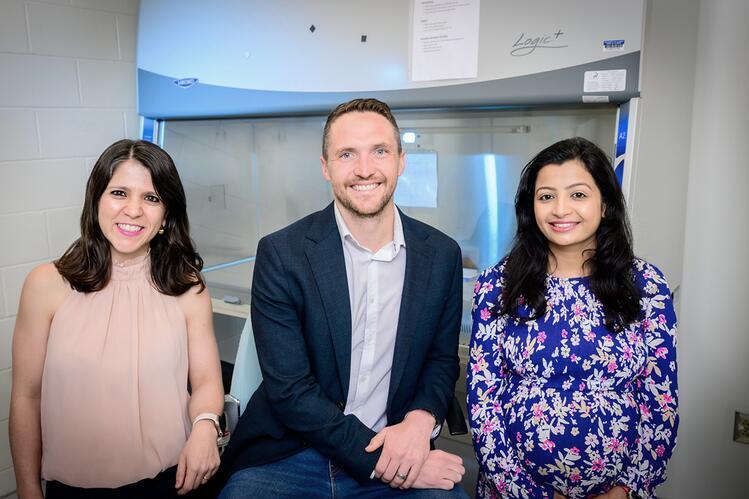Gut microbes from aged mice induce inflammation in young mice, study finds

When scientists transplanted the gut microbes of aged mice into young “germ-free” mice — raised to have no gut microbes of their own — the recipient mice experienced an increase in inflammation that parallels inflammatory processes associated with aging in humans. Young germ-free mice transplanted with microbes from other young mice had no such increase.
The findings suggest that changes to the gut microbiome play a role in the systemwide inflammation that often occurs with aging, the researchers said.
Reported in the journal Aging Cell, the study also found that antibiotics caused longer-lasting disruptions in the gut microbiomes of aged mice than in young mice.
“There’s been a growing consensus that aging is associated with a progressive increase in chronic low-grade inflammation,” said Jacob Allen, a professor of kinesiology and community health and nutritional sciences at the University of Illinois Urbana-Champaign who led the new research with Thomas Buford, a professor of medicine at the University of Alabama at Birmingham. “And there’s a kind of debate as to what drives this, what is the major cause of the aging-induced inflammatory state. We wanted to understand if the functional capacity of the microbiome was changing in a way that might contribute to some of the inflammation that we see with aging.”